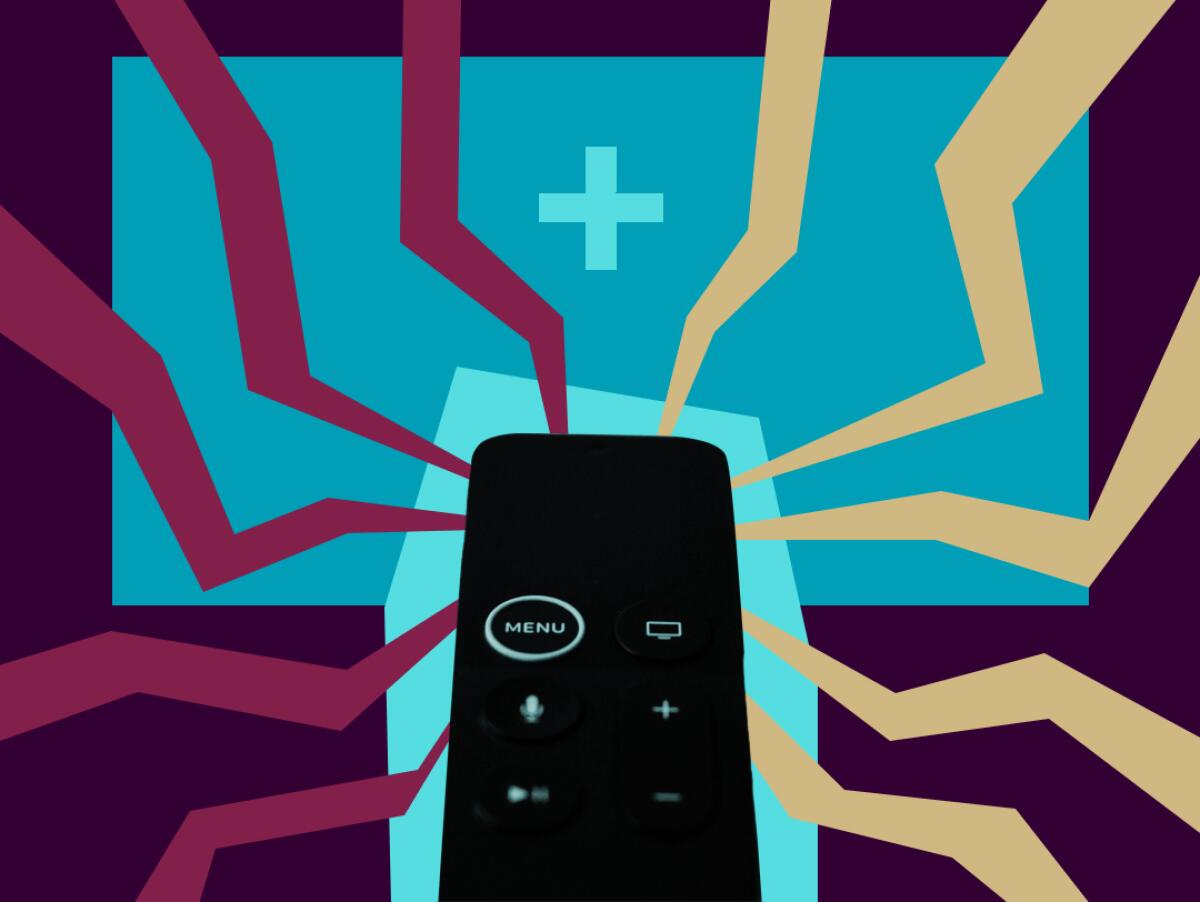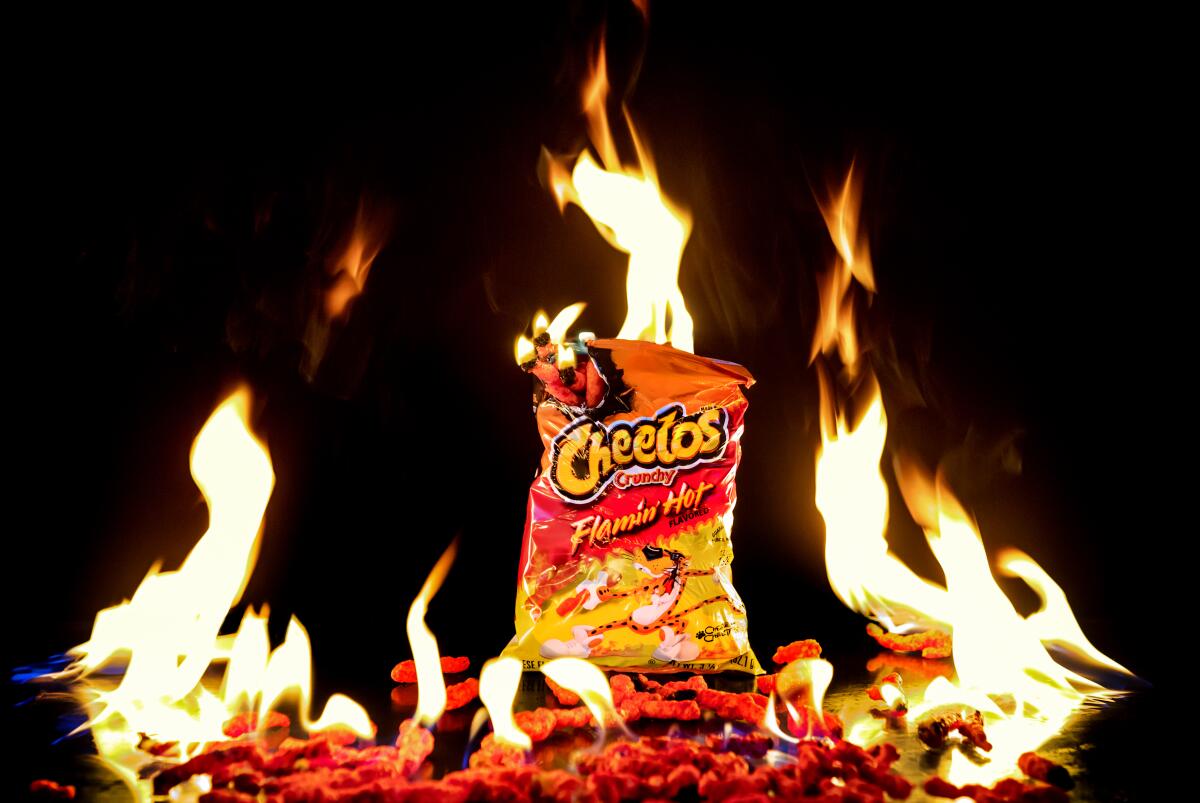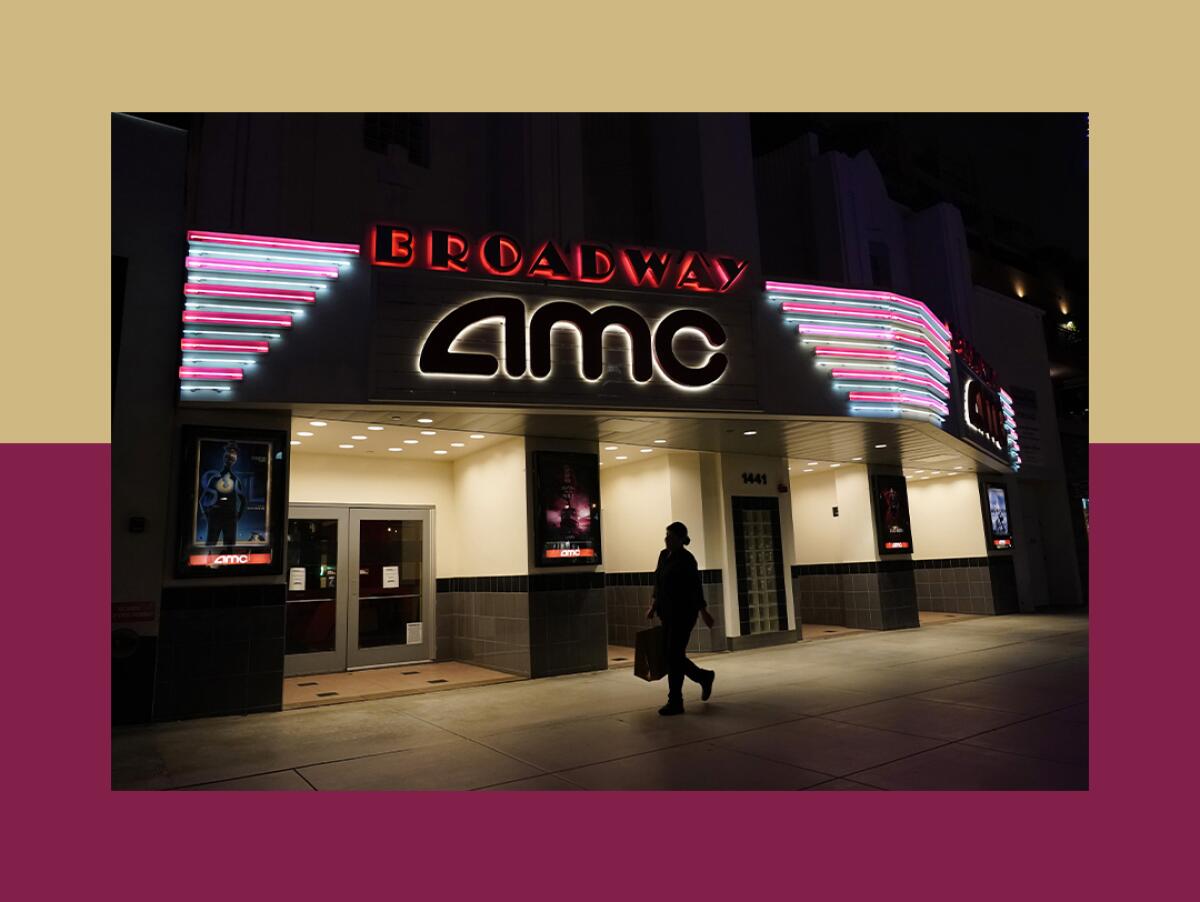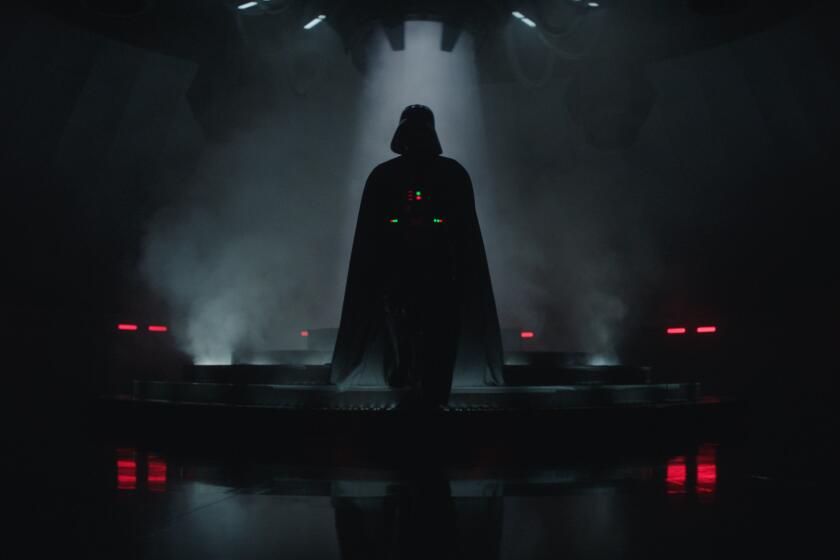AT&T’s WarnerMedia will merge with Discovery. Is a great re-bundling at hand?

- Share via
By the time the $43-billion WarnerMedia and Discovery merger was announced Monday morning, the media and entertainment industry was still getting over the shock that such a deal was even on the table.
Perhaps we should have seen it coming. Discovery Chairman John Malone has long talked about consolidating the “free radicals” of the media industry. So here we are.
And now that most major media companies have launched their own over-the-top apps, the industry is reckoning with the realities that: 1) using entertainment content to sell mobile phones may not make sense, 2) competing with Netflix and Disney is extremely expensive, and 3) consumers don’t need or want to pay for dozens of streaming services.
More than 300 services — including subscription, advertising-based and transactional video-on-demand platforms — are competing for eyeballs in the U.S., according to Parks Associates. That’s more than double the number in 2014. Some 31% of people have four or more services, according to Parks Associates. An additional 13% pay for three.
Analysts and executives have been expecting a round of consolidation as these factors hit home, which we previewed in our inaugural column. Discovery Chief Executive David Zaslav predicted it in a December appearance on CNBC, foreseeing a future when only a few big players survive.
“Will there be three? Will there be four? There’s not going to be seven,” Zaslav said, as Meg James and Stephen Battaglio noted in their Sunday analysis. “In some way, it will be re-conjugated. We think there will be a re-bundling. Our job is to make sure we’re absolutely essential… But I’m not sure anybody has all the cards.”
WarnerMedia and Discovery make sense together because Discovery’s brands (Animal Planet, Property Brothers, Guy Fieri) address markets that HBO, Warner Bros. movies and CNN do not. Most people expect HBO Max and Discovery+ to combine into a super-service to compete directly with Netflix.
Of course, the human toll at WarnerMedia shouldn’t be overlooked. The company has weathered three years of upheaval under AT&T and will now face another round of reconfiguration. On the bright side, some Warner-affiliated creatives I spoke to are looking forward to the end of the AT&T era. Unlike AT&T, Zaslav has been steeped in media and entertainment. (Read our profile.)
Re-bundling intuitively sounds like a good idea on some level. In the last couple years, everyone in media has made or heard the joke that goes along these lines: There are too many streaming services. If only we could pay one monthly fee to watch all these channels. We could call it ... a “TV bundle.”
Inside the business of entertainment
The Wide Shot brings you news, analysis and insights on everything from streaming wars to production — and what it all means for the future.
You may occasionally receive promotional content from the Los Angeles Times.
People are essentially creating their own bundles out of the various apps. For media companies, becoming one of the three or four “essential” parts of that a la carte bundle costs billions of dollars a year. AT&T, with its massive debt load, didn’t want to keep playing that game.
WarnerMedia boasts a combined 44 million domestic subscribers to the legacy HBO channels and HBO Max and 63.9 million worldwide. Discovery’s streaming apps, including Discovery+, have 15 million. Netflix has more than 200 million paying members.

If WarnerMedia can’t compete on its own, what does that say for the other players? Do NBCUniversal and ViacomCBS get together? What happens to Lionsgate and MGM? On Monday, the Information reported that Amazon was in talks to buy MGM. The companies declined to comment but sources confirmed to The Times talks were underway.
And that’s not even touching on the roughly 250 mini-services scattering the landscape.
This week I wrote about the Los Angeles-based company Struum, an app that aggregates and recommends content from dozens of niche streaming services in one easy package.
The service is designed to make finding what to watch a less confounding experience. According to Deloitte, more than half of consumers are frustrated that they have to subscribe to multiple services to watch the content they want.
Struum, founded last year by four ex-Disney and Discovery execs, tries to address this issue by letting subscribers access shows and movies from more than 50 niche distributors including BBC Select, Tribeca, Magnolia, Cinedigm and Shout! Factory.
“For the consumer, it’s so hard to find things,” said Chief Executive Lauren DeVillier, a former Discovery Ventures and Disney/ABC TV Group executive. “Everything’s so disaggregated. We’re sort of re-bundling for consumers.”
The catch for customers is, it doesn’t include the big ones like Disney+, Netflix and Amazon Prime. They don’t need Struum. Instead, it’s re-creating a bundle for the niche services that don’t get a lot of attention on their own.
Struum, backed by former Disney CEO Michael Eisner, does this by charging a $4.99 monthly fee in exchange for credits that viewers can use to pay for access to a wide variety of movies and shows. It’s like ClassPass, the fitness app that lets you sample workouts at different gyms and exercise studios. Except with Struum, you pay five or six credits to watch “Dial M for Murder.”
Other companies have been trying to help consumers re-create a quasi-streaming bundle, including Amazon and Roku, aggregators like JustWatch and Reelgood and the recently launched app ScreenHits TV.
Look, we’re not seriously nostalgic for the traditional bundle. Bundling was a boon for media companies because viewers couldn’t watch live sports without also paying for a gajillion other channels. For the consumer, it’s a pain. Eisner, who benefitted from the arrangement while atop Disney, acknowledged as much.
“In the cable go round, there were so many cable channels and the price to consumers got to be so high that the whole industry kind of got messy,” Eisner told me in an interview about Struum. “It got difficult and confusing and expensive.”
Messy, difficult, confusing and expensive. Some things never seem to change.
More stuff we wrote

— The man who didn’t invent Flamin’ Hot Cheetos. Sam Dean has the tale of how Richard Montañez for years told a story of how he dreamed up the spicy snack while working as a Frito-Lay janitor. The archival record, former employees and Frito-Lay itself say otherwise. In a Hollywood connection, Montañez is the subject of an in-the-works biopic from Searchlight.
— What the end of “Ellen” says about the changing TV business. The announcement that Ellen DeGeneres will wrap up her long-running daytime talk show in 2022 is another step toward the end of television as viewers once knew it, writes Stephen Battaglio.
— This manager is working toward diversity in Hollywood — and that includes those with disabilities. Anousha Sakoui profiles Eryn Brown of Management 360, who has faced barriers in getting employment or even accessing industry events because of her disability.
— Making a TV show about slavery could undo you. Unless the director steps up like this. Greg Braxton on Barry Jenkins’ “Underground Railroad,” streaming on Amazon Prime Video.
Gulp-worthy quote of the week
From Shawna Kidman, a communication professor at UC San Diego, in my colleagues’ story on NBC’s decision to scrap the 2022 Golden Globes telecast:
“Everyone knew there were problems with this group but yet they supported it for years and years, because their relationships with the Golden Globes were mutually beneficial,” Kidman said. “Then, all of a sudden, Netflix and Warner Bros. and others began pretending that they got a conscience.”
Number of the week

I know, the obvious number of the week is the value of the WarnerMedia-Discovery deal ($43 billion).
But for the sake of variety, we’re going with the Disney+ numbers. Walt Disney Co. last week said it hit 103.6 million subscribers for Disney+ in the second quarter, an increase of 8.7 million over three months. That’s down from the 21.2 million it added in the first quarter.
After more than a year of spectacular growth, Wall Street was not impressed with the quarterly stats and sent Disney’s stock down 4% after hours. Analysts had expected 109 million subscribers, 5 million more than the company reported.
It’s never a good idea to read too much into a single quarter. Netflix has had slowdowns in the past that sent its stock reeling, and it’s still the dominant player in subscription video.
Disney CFO Christine McCarthy noted that the company didn’t launch Disney+ in any major new markets during the quarter and also imposed price hikes. Bob Chapek said the service is still on track for its goal of 230 million to 260 million subscribers. Still, a slowdown is a slowdown.
With Netflix also reporting “disappointing” subscriber adds in its most recent quarter, it’s not unreasonable to ask whether there’s a broader slowdown in streaming growth happening after COVID-19 supercharged viewership trends.
Coming attractions

In other remarkable Disney news, the studio will give theaters a 45-day exclusive window for the Ryan Reynolds comedy “Free Guy” and Marvel’s “Shang-Chi and the Legend of the Ten Rings.” In another world, this would have been noteworthy for cutting the typical 90-day gap in half. But after a year of simultaneous releases and 17-day PVOD experiments, it’s about as good as exhibitors could hope for.
It’s in this context that the studios and the National Assn. of Theatre Owners are rolling out their “The Big Screen Is Back” marketing campaign, which began with a Oscar pre-show PSA featuring theater workers and clips. The initiative continues Wednesday with an event at the AMC Century City, where the studios are expected to show off previews of their upcoming movies. Is it weird that I miss seeing trailers on the big screen?
More top stories
— Binge without borders: “Lupin,” “Call My Agent!” and the global TV explosion. If there’s not a French, Korean, Israeli or Spanish show you’re obsessed with, the world has left you behind. (Vanity Fair)
— In Hollywood, is the press the new human resources? Guest column: Studios and agencies shouldn’t wait to act on claims of bad behavior until the media start reporting on it. (Hollywood Reporter)
— Marvel Studios’ Disney+ shows don’t use showrunners, and that has some TV writers worried. (Variety)
Finally... a recommendation
I just finished reading Tana French’s novel “The Searcher,” a sort of neo-western mystery about a disappearance in small-town Ireland. Like all her work, it’s atmospheric and tense.
What’s making me smile consistently is the YouTube show “Two Minutes to Late Night,” recently profiled by Rolling Stone. Its best recurring feature is its face-melting collaborative bedroom covers of songs including “Reelin’ in the Years” and “Dead Man’s Party,” featuring members of various rock groups.
Inside the business of entertainment
The Wide Shot brings you news, analysis and insights on everything from streaming wars to production — and what it all means for the future.
You may occasionally receive promotional content from the Los Angeles Times.




